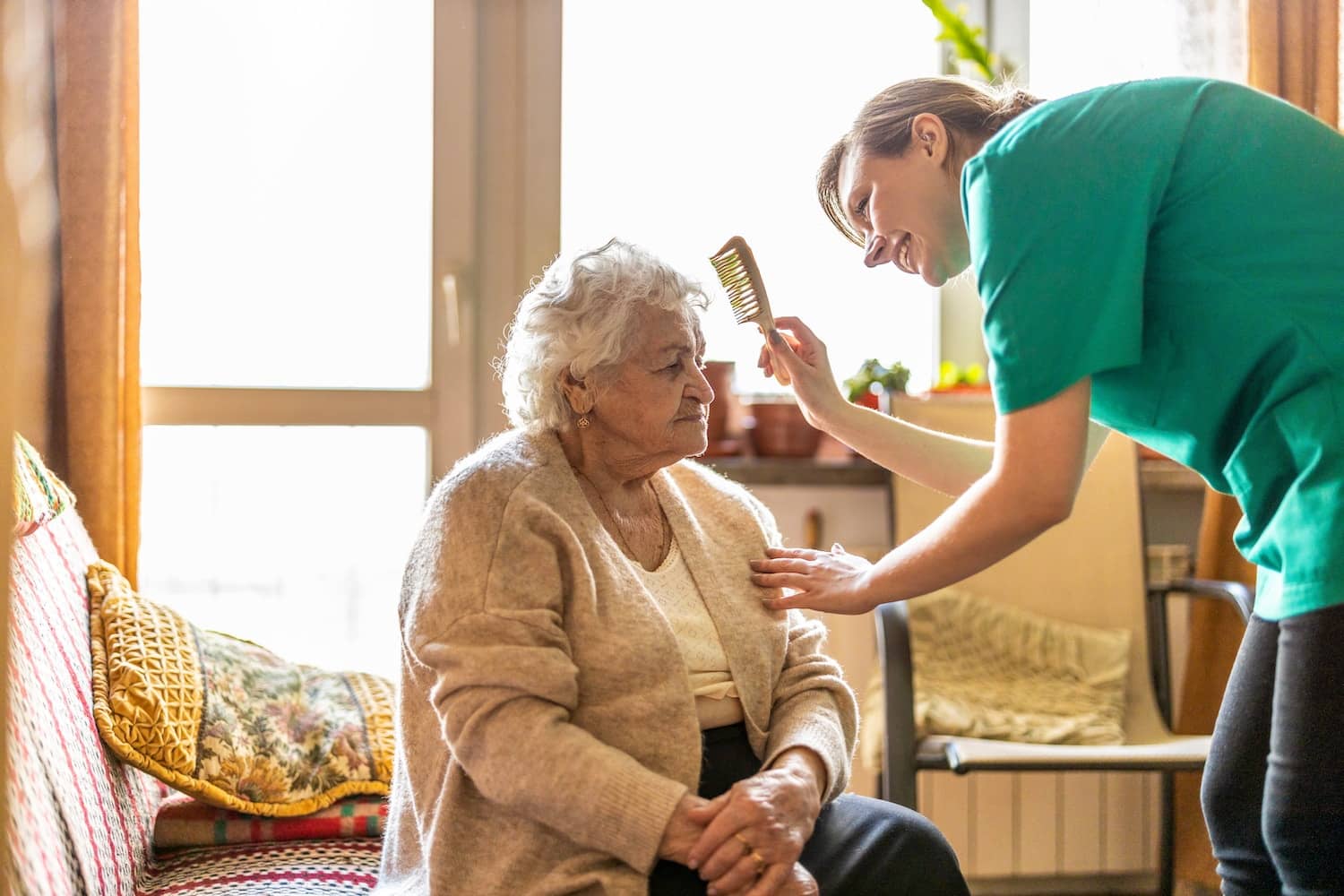Memory Care Facilities Charlotte: Creating a Secure and Nurturing Community
Memory Care Facilities Charlotte: Creating a Secure and Nurturing Community
Blog Article
Efficient Dementia Care Methods for a Better Lifestyle
In the realm of dementia treatment, the implementation of effective approaches is essential for boosting the top quality of life for both individuals impacted by the disease and their caregivers. Understanding the unique phases of mental deterioration enables tailored interventions that attend to the developing requirements of clients-- from promoting cognitive involvement in the onset to guaranteeing dignity in late-stage care. Moreover, the importance of communication methods and a helpful setting can not be overemphasized. What specific approaches can be taken on to promote an environment of compassion and connection throughout this tough journey?
Recognizing Dementia Phases

In the early stage, people may experience light amnesia and problem with familiar jobs. Care techniques must concentrate on maintaining independence and giving cognitive stimulation. The middle phase is characterized by enhanced complication, problem recognizing liked ones, and impaired judgment. Throughout this stage, caregivers need to carry out structured routines and ensure a secure setting. Finally, in the late phase, people may lose the capacity to connect and require aid with daily tasks. Here, caring treatment is crucial, highlighting convenience and self-respect.
Acknowledging these stages permits caretakers to adjust their techniques and provide assistance that aligns with the person's current needs, inevitably helping with much better management of the condition and enhancing the general caregiving experience. Comprehending mental deterioration phases is consequently a fundamental aspect of effective mental deterioration treatment.
Interaction Methods
Effective communication is a vital component of dementia treatment, especially as the disease advances through its numerous phases. As cognitive capacities decline, it comes to be vital to adapt communication techniques to meet the requirements of people with dementia. Utilizing clear, easy language is crucial; caregivers ought to avoid complex sentences and jargon, deciding rather for straightforward, concise expressions.
Non-verbal interaction plays a similarly significant duty. Face expressions, gestures, and tone of voice can convey heat and understanding, often boosting spoken messages. Maintaining eye contact and an open stance cultivates a feeling of connection and security, urging people with dementia to involve even more totally in discussions.
It is likewise helpful to be person and permit adequate time for reactions. People may call for added time to process details and formulate their ideas. Repeating or rephrasing questions may be needed if comprehension shows up doing not have.
Finally, concentrating on the individual's rate of interests and personal background can help with more meaningful interactions. Taking part in acquainted topics can stimulate positive memories and feelings, even more improving the interaction experience (memory care facility charlotte). By using these strategies, caretakers can significantly improve the top quality of communications, advertising self-respect and regard for people living with dementia
Developing a Safe Atmosphere
Developing a risk-free atmosphere for individuals with dementia is important to advertising their health and independence. A properly designed room can dramatically lower the dangers of crashes and improve the quality of life for those affected by this problem.
Lights plays a critical role as well; making use of natural light wherever feasible and incorporating night lights can aid people navigate their surroundings securely. In addition, identifying rooms and vital things can help memory and orientation, decreasing confusion and stress and anxiety.
It is likewise important to develop a familiar setting by customizing the area with photographs or valued items, which can stimulate positive memories and a feeling of belonging.
Including furniture that is both functional and comfy adds to an encouraging environment, enabling people to engage in everyday my blog tasks with simplicity. Ultimately, a risk-free setting not just safeguards versus physical dangers yet likewise fosters a complacency, which is vital for the emotional wellness of those coping with dementia.
Engaging Regimens and activities
Engaging tasks and organized routines are vital components in the care of people with dementia, as they promote cognitive feature, emotional stability, and social interaction. These activities must be tailored to the individual's interests, capacities, and stage of cognitive decline. charlotte care home. Easy, repeated jobs such as horticulture, crafts and arts, or food preparation can offer meaningful involvement, enabling people to utilize their skills while cultivating a sense of achievement
Establishing a daily routine aids produce a foreseeable setting, which can reduce anxiety and confusion. This framework can consist of marked times for meals, activities, and rest, ensuring a balanced strategy to day-to-day live. Incorporating social communications into these routines, such as team activities or checking out household, additional improves psychological well-being and battles sensations of seclusion.
Moreover, exercises, such as walking or dancing, not only promote physical health and wellness yet also promote psychological engagement. Motivating involvement in area occasions or support groups can provide additional chances for socializing. In general, the assimilation of interesting activities and structured routines is essential in boosting the top quality of life for people with mental deterioration, cultivating freedom and self-respect while addressing their one-of-a-kind needs.
Supporting Caregiver Wellness
Taking care of people with dementia can be a requiring and psychologically taxing experience, making it imperative to prioritize the wellness of caregivers. Caretakers commonly face high levels of tension, stress and anxiety, and physical exhaustion, which can cause exhaustion otherwise resolved properly. To support their wellness, it is necessary to implement a complex approach.
First, giving caregivers with accessibility to education and learning and resources can empower them with techniques to manage day-to-day challenges. Support teams, both in-person and online, use a platform for sharing experiences, cultivating a feeling of neighborhood, and decreasing feelings of isolation. Additionally, reprieve care services allow caregivers to take necessary breaks, allowing them time to participate in and charge to their very own wellness needs.
In addition, urging caretakers to engage in self-care practices-- such as normal workout, healthy consuming, and mindfulness-- can significantly improve their strength. Advertising open communication regarding their feelings and difficulties with relative or specialists also aids reduce emotional problems.
Verdict
Finally, reliable dementia treatment approaches encompass a detailed understanding of the condition's stages, the application of clear communication methods, the facility of a risk-free atmosphere, and the promotion of interesting activities and structured routines. In addition, focusing on the wellness of caretakers is vital to sustaining high quality treatment. By incorporating these methods, the overall top quality of life for people with mental deterioration can be significantly enhanced, fostering a helpful ambience that advertises self-respect and emotional well-being.
In the realm of mental deterioration treatment, the implementation of efficient approaches is important for improving the top quality of life for both individuals impacted by the illness and their caregivers. By utilizing these strategies, caretakers can considerably improve the high quality of interactions, find more advertising self-respect and his comment is here respect for people living with dementia.

Caring for people with dementia can be a demanding and mentally exhausting experience, making it necessary to prioritize the wellness of caregivers.
Report this page